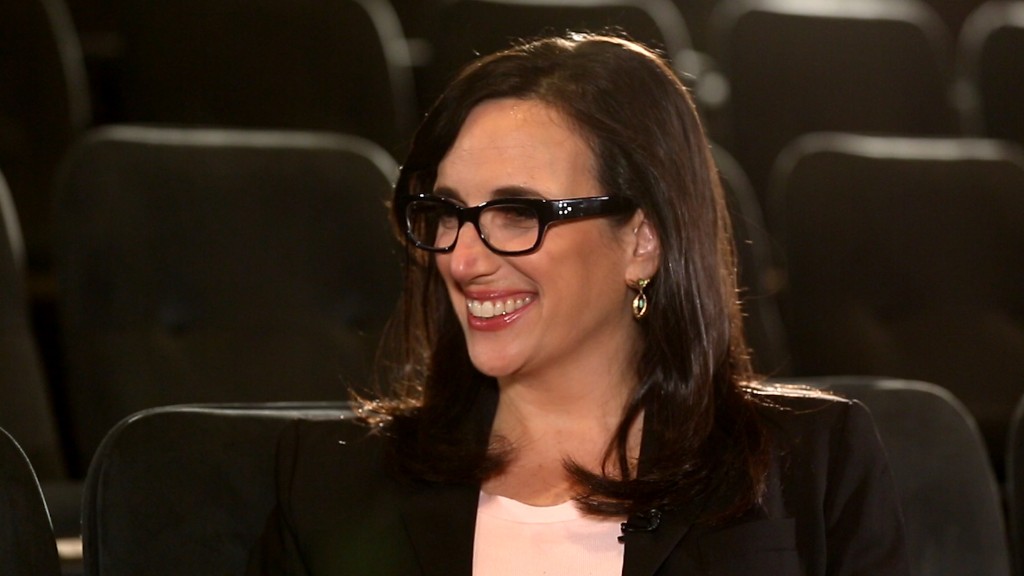
It wasn't too long ago that Sunethra Muralidhara was buried under a mountain of debt.
She had taken out loans for undergraduate and law school, which put her about $200,000 in the hole. But she wasn't too worried about it at the time. She figured her law degree would be worth it and everyone always told her it was "good debt."
"People had me convinced that taking 30 years to pay off the debt was normal and that I shouldn't worry about it," she said.
But her then-boyfriend, Michael Mohan, was worried about the six-figure burden.
"When I found out how much debt she had, I started Googling," he said. He pulled an all-nighter watching online personal finance tutorials and didn't go into work the next day.
He eventually approached Muralidhara about the debt. The conversation didn't go well.
"It was probably the biggest fight in our relationship," she recalled. "We weren't engaged or married at the time. We were on that path, but from my point, I thought 'who do you think you are?'"
Related: 5 tips to help you save your first $1,000
That initial anger turned into understanding when Mohan explained his concern.
"He wanted to have a house and kids with me; it was a good intention and he was coming from a place where he saw a future and having too much debt could hinder that."
So the two got serious about paying down the debt. Really serious.
They paid the $200,000 off in 26 months, while also paying for their wedding and Mohan's MBA without financing.
Here's how they did it:
They moved to a cheaper city
When Muralidhara started looking for jobs ahead of law school graduation, she realized staying in Chicago didn't make sense.
"The legal market was so saturated there and jobs were paying so poorly. I couldn't take a job for $40,000-$50,000 when I have $200,000 in student loans."
So she started looking for more competitive legal markets.
When she and Mohan each made a list of cities they were willing to move, Las Vegas made both lists.
Not only is the cost of living lower, Nevada doesn't have a state income tax, which helps them save more.
"I felt that if we had stayed in Chicago, we would have been living paycheck to paycheck."
Leaving Chicago also meant saying goodbye to their existing group of friends, which also provided some budgetary relief.
"We didn't really know anyone when we first moved," Mohan said. "There was no outside pressure to spend money and go out."

They created a budget, and stuck to it
When the couple first moved to Vegas they each created a budget.
"It's important to be on the same page and align your goals together," said Mohan. "You can have different goals -- like one can want to travel and the other to buy a house -- and you work toward them together."
They listed out all their expenses and then started to trim.
Related: Finding a budget that's the right fit for you
"We cut Starbucks (SBUX) out, cable was out, we decided to limit our eating out," said Muralidhara. "We cut our budget to the bare bones, and in a few months, we saw the benefits and the difference in our lives."
They got thrifty
During the 26-month paydown period, they lived off of just 25% of their paychecks, saving the rest.
Muralidhara put her savings toward her student loans while Mohan bulked up his savings account. When the two got married, he put the money toward her debt too.
But living off just a quarter of your income takes discipline and creativity.
Muralidhara gets her hair cut by students at a training facility, they traveled little farther to buy groceries at the cheapest prices, and they make a week's worth of lunches and dinners on Sundays to avoid food runs at work or splurges after work.
"We literally eat the same thing for two weeks sometimes," said Muralidhara.
Since paying off all the debt, they've loosened the purse strings ... a little. They now live off about 30% of their take-home pay and hope to buy a house in cash within three years.
She put her dream job on hold (temporarily)
Muralidhara knew she wanted to be a public defender. But the pay isn't exactly great.
"I knew the salary would make it difficult to pay [the loans] back," she said. Instead, she decided to join a law firm with higher pay.
It wasn't her dream job and the hours were long, but she viewed it as temporary and a chance to build experience.
Plus, there was a perk to the long hours. "I was working 80 hours a week. When you work that much, there's no time to spend money."
She was eventually able to leave that job and is now an assistant federal public defender.
They negotiate everything
The pair have become master negotiators.
Muralidhara even negotiated her own engagement ring, shaving more than $2,000 off the price. And when it came time to plan the wedding, they estimated their skills saved them $15,000-$20,000 dollars.
"The biggest way we got discounts was paying cash upfront," she said. Their venue offered a 40% discount for paying in cash -- but the couple asked for more. "We got additional things like lanterns, some decorations, different light fixtures and table cloths."
Related: 7 ways to become a negotiation ninja
When making big purchases, the couple does their research to find out how much wiggle room they have to negotiate.
"We always ask, 'is that the best you can do?'" said Mohan.
But negotiating isn't always about cutting costs. They both aggressively negotiated their salaries too, with Muralidhara getting 8% more than offered, and Mohan about 7%.
"If you feel like you are worth more, ask for more," said Mohan.
